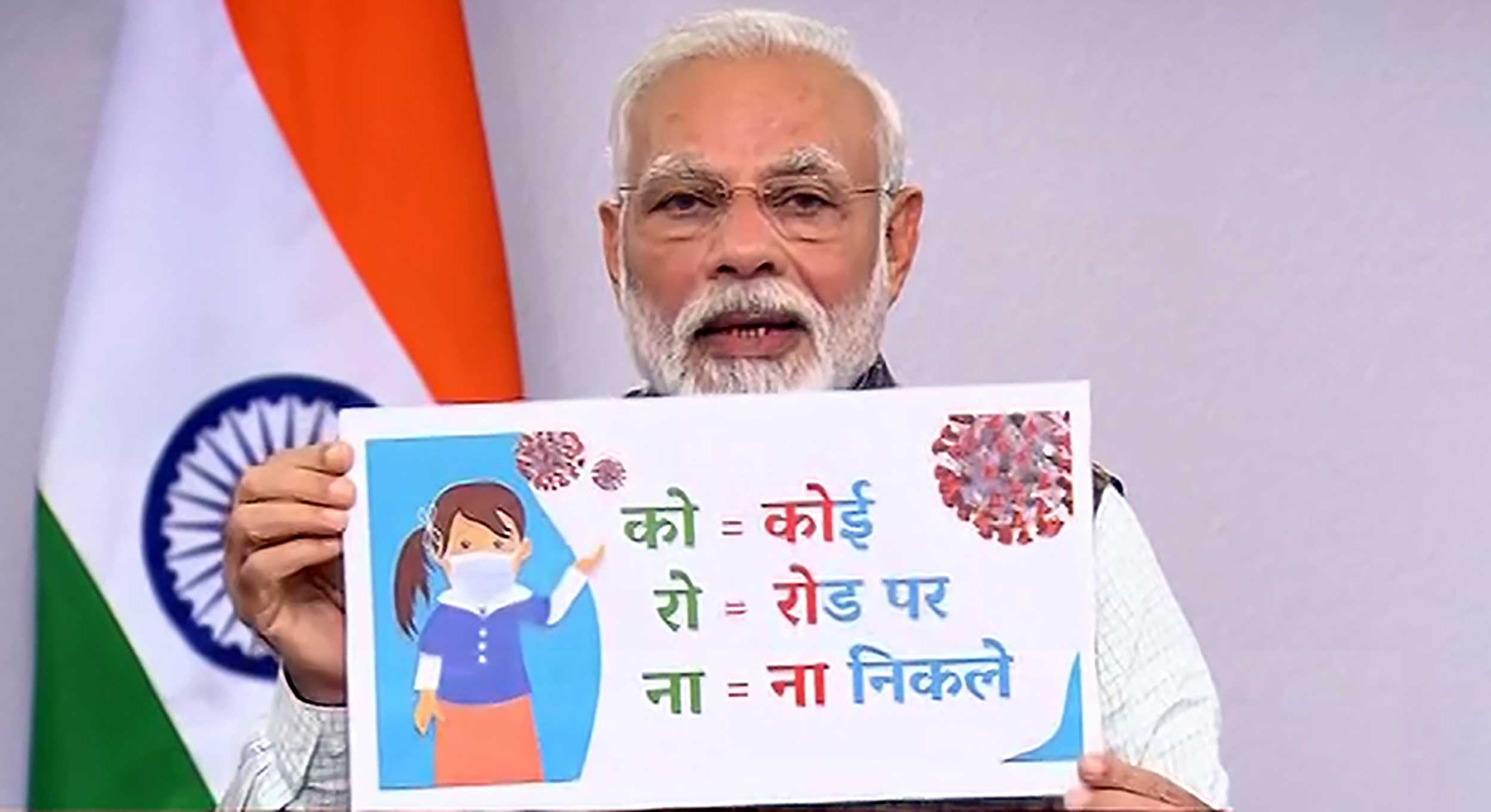The prime minister has drawn a lakshman rekha that India will do well not to violate for its own well-being. In his second address to the nation, Narendra Modi announced a 21-day lockdown period for the entire country, an unprecedented step that is thought to be necessary to break the chain of local transmissions of the coronavirus. The Centre also stated that it has put together a sum of Rs 15,000 crore to bolster the health infrastructure to contain the pandemic. There is merit in this kind of intervention. A mathematical simulation conducted by the Indian Council of Medical Research has revealed that aggressive implementation of social distancing — the aim of Mr Modi’s extended lockdown —can reduce the number of expected cases by 62 per cent and peak numbers by as much as 89 per cent. The World Health Organization, too, is watching the strategies that India has adopted; their outcome, the WHO declared, could be decisive in the global battle against Covid-19.
What is instructive, however, is the pandemonium that followed Mr Modi’s directive. A number of cities witnessed panic purchase by consumers. Worryingly, essential services — the prime minister promised that they would remain undisturbed — have also been adversely affected. Milk, bread, medicines, cooking gas, even newspapers are in short supply on account of disruptions in the supply chain — shortage in packaging material, transportation, helping hands. Astoundingly, employees of food delivery apps have alleged that they are being harassed by the police while delivering food. The anxieties and disruptions are symptomatic of a deeper problem.
Mr Modi’s government seems to be preparing for battle a bit too late in the day. Had the government realized the scope of the crisis earlier — this was the point that Rahul Gandhi had made — it would have had the time to put in place a system to plug shortages and alleviate the resultant hysteria. The implosion of essential networks is expected to batter those on the margins of India’s welfare net: the rural and urban poor, employees in the unorganized sector, adivasis. Bengal and, earlier, Uttar Pradesh have announced grants in this respect. There were expectations that Mr Modi would also provide such relief. Nothing has materialized so far in this respect, even though the Centre is expected to spend Rs 20,000 crore on the Central Vista project. This delay could be as fatal to India’s underprivileged people as the virus.










